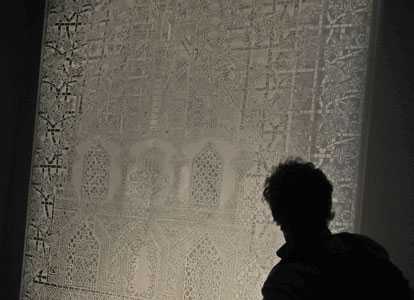By John Lancaster
By Stephen Kinzer
Times. 274 pp. $26
For the title of his new book, Stephen Kinzer borrows the latest diplomatic fad word — “reset” — in calling for a makeover of U.S. policy in the Middle East. I know what you’re thinking: Oh no. Not another book on — fill in the blank (American missteps in Iraq, the Israel lobby, Saudi oil politics, etc.). While Kinzer touches on several such themes, his main thesis is more provocative: The path to a stable Middle East runs not through Israel and traditional Arab allies but through Turkey and Iran. Therein lie the book’s strengths as well as its main weakness.
First, its strengths: A former foreign correspondent for the New York Times, Kinzer argues persuasively that despite their very different governments — one friendly and free, the other hostile and theocratic — both Turkey and Iran are host to vibrant democratic traditions that make them natural long-term partners of the United States. He deftly interweaves the stories of the Iranian and Turkish democracy movements, whose roots are deeper than most Americans realize.
For example, Kinzer shows how recent anti-government protests in Iran are part of a continuum that dates at least to 1906, when popular fury toward a decadent monarchy led to the creation of Iran’s first parliament. Of particular interest is the story of Howard Baskerville, a young Princeton graduate from Nebraska who was teaching in Tabriz when the ancient city was besieged by royalist forces seeking to crush the new democracy. Baskerville sided with the democrats and died while leading schoolboys into battle in 1909. “Today Howard Baskerville is an honored figure in Iran,” Kinzer writes. “Schools and streets have been named after him. His bust, cast in bronze,” holds a place of honor in Tabriz. Who knew?
The account is typical of Kinzer’s lively, character-driven approach to history. Mustafa Kemal — also known as Ataturk, the charismatic army officer who is regarded as the founder of modern Turkey — is depicted as an alcoholic and libertine whose conquests included a teenage Zsa Zsa Gabor, or so she later claimed. More substantively, Kinzer describes a ruler so bent on purging the Turkish state of religious influence that he ordered civil servants to shed their traditional fezzes in favor of Western-style bowler hats. In that and other ways, Kemal had much in common with Reza Shah Pahlavi, the rough-hewn soldier who seized power in Iran in 1921. Despite their autocratic styles, both rulers were relentless modernizers who promoted education and women’s rights — and in doing so, Kinzer argues, helped create the conditions that allowed democratic ideals to germinate. The two countries “developed national identities shaped by the Enlightenment as well as Islam,” Kinzer writes. “This was a new synthesis. It invigorated Turkey and Iran and set them starkly apart from the countries around them.”
After decades of instability and military rule, Turkey, a NATO member, has capitalized on its democratic potential and has even moved haltingly toward membership in the European Union. For that, Kinzer assigns much credit to Turkey’s ruling Justice and Development Party, whose Islamist leanings belie the view that Islam and democracy are incompatible. “Democracy has become Turkey’s only alternative,” Kinzer writes. “Even pious Muslims recognize, accept, and celebrate this.”
Iran, of course, is another story. That is at least partly the fault of the United States, whose role in ousting the democratically elected government of Mohammad Mossadegh in 1953 forms an important part of Kinzer’s narrative (and the focus of one of his previous books). The coup restored the Pahlavi dynasty. It also set the stage for the 1979 Islamic Revolution and the decades of U.S.-Iranian enmity that have followed. But Kinzer still finds reasons for hope. Even now, he writes, “Iran is the only Muslim country in the world where most people are reliably pro-American. This pro-American sentiment in Iran is a priceless strategic asset for the United States.”
Kinzer’s take on Iran and Turkey is fresh and well-informed, but he stumbles when he plays policymaker. His plea for a more conciliatory approach to Iran sounds a bit fanciful at a time of rising tensions over its nuclear program. And besides, haven’t we tried that already? Nor is there anything particularly new about Kinzer’s call for a recalibration of U.S. policy toward Saudi Arabia and Israel. For example, he is hardly the first to urge a tougher approach to Israel, a chorus that has only grown louder since Israel’s disastrous commando raid on a flotilla trying to breach its naval blockade of Gaza in May. In Kinzer’s view, it’s time for the Obama administration to “impose” a peace settlement on Israel and the Palestinians, but he doesn’t explain quite how it should do this, other than presiding over “a coercive version of the smoke-filled room.” After the riches of the book’s first half, I found myself wishing that Kinzer had dispensed with the think-tank musings (and bullet points) and stuck to his strengths as a journalist and historian.
John Lancaster is a former Middle East correspondent for The Washington Post.
https://www.washingtonpost.com/wp-dyn/content/article/2010/07/09/AR2010070902109.html, July 11, 2010




